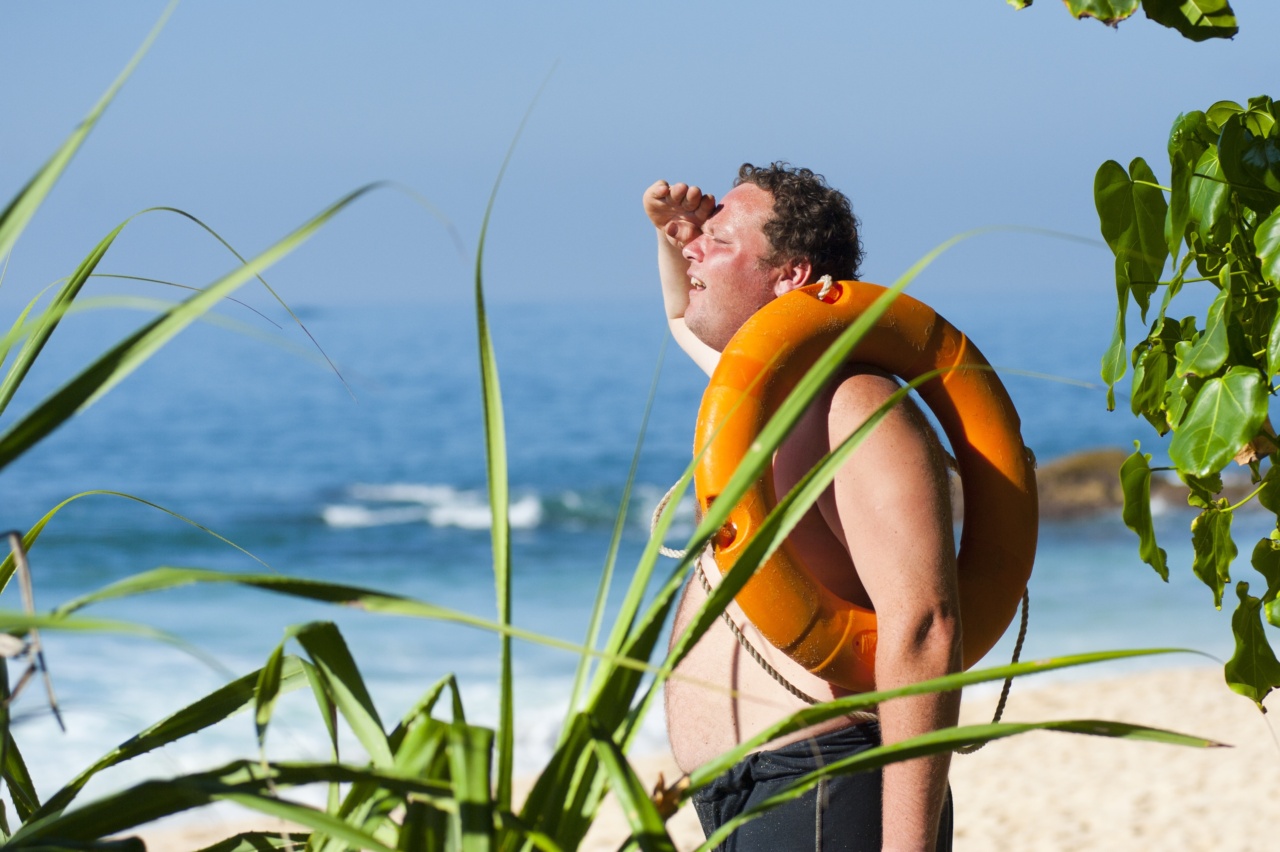As the summer season approaches, it’s important to take note of how the hot weather can affect our health, particularly those who suffer from hypertension.
Hypertension, or high blood pressure, affects millions of people worldwide and is a major risk factor for cardiovascular diseases, including heart attacks and strokes. Heat and humidity can have a significant impact on blood pressure levels, so it’s crucial to understand the relationship between hypertension and summer weather.
Understanding Hypertension
Hypertension is a condition characterized by elevated levels of blood pressure within the arteries. It occurs when the force of blood against the artery walls is too high, causing strain on the heart and blood vessels.
This force is measured in millimeters of mercury (mmHg) and is represented by two numbers: systolic pressure (the top number) and diastolic pressure (the bottom number). Normal blood pressure is typically around 120/80 mmHg.
The Impact of Hot Weather
During the summer, hot weather and high humidity can lead to several physiological changes in the body. One of the primary mechanisms is vasodilation, where blood vessels expand to release excess heat and cool the body down.
While this is a normal response, it can have adverse effects on individuals with hypertension.
When blood vessels dilate, it increases the amount of blood flowing through them, resulting in higher blood pressure. Additionally, the heart needs to work harder to pump blood to the dilated vessels, which can further elevate blood pressure levels.
This increased strain on the cardiovascular system can be particularly problematic for those already diagnosed with hypertension.
Dehydration and Blood Pressure
Another concern during the summer months is dehydration. Sweating is a natural response to regulate body temperature in hot weather, but it can lead to fluid and electrolyte imbalances if not properly managed.
Dehydration can cause blood to become thicker and more concentrated, which in turn increases blood pressure.
Furthermore, dehydration can trigger the production of hormones like vasopressin, which constrict blood vessels and elevate blood pressure.
For individuals with hypertension, staying properly hydrated is crucial to maintain stable blood pressure levels and reduce the risk of cardiovascular complications.
Heat-Related Medications
Many individuals with hypertension take medications to control their blood pressure. It’s important to note that certain medications can interact with hot weather and pose additional risks.
Diuretics, for example, can increase the risk of dehydration as they promote fluid loss through increased urine production. This, in turn, can impact blood pressure regulation.
Other medications, such as beta-blockers and calcium channel blockers, can affect how the body responds to heat and compromise the body’s ability to regulate temperature.
It’s essential to consult with a healthcare professional regarding any necessary adjustments to medications during the summer months to ensure optimal management of hypertension.
Managing Hypertension in the Summer
While hot weather poses challenges for individuals with hypertension, there are several strategies that can help manage blood pressure levels during the summer season:.
1. Stay Hydrated
Drink plenty of fluids, particularly water, to prevent dehydration. Limit your intake of sugary drinks and alcohol as they can contribute to fluid imbalances. Keep a water bottle with you at all times, especially when spending time outdoors.
2. Keep Cool
Avoid exposure to high temperatures during peak hours. Stay in air-conditioned spaces when possible, and if going outside, seek shade and wear loose, light-colored clothing. Use fans, take cool showers, and use cold packs to help lower body temperature.
3. Be Mindful of Physical Activity
Engage in physical activity during cooler hours of the day, such as early morning or late evening. Avoid strenuous exercise in extreme heat and opt for indoor activities or swimming, which can help regulate body temperature.
4. Monitor Salt Intake
Excessive salt consumption can contribute to fluid retention and elevated blood pressure. Be mindful of your salt intake and opt for fresh, whole foods instead of processed or packaged goods, which tend to contain higher amounts of sodium.
5. Take Medications as Prescribed
Continue taking prescribed medications for hypertension as directed by your healthcare provider. If you experience any side effects or concerns related to the medication, consult with your doctor for appropriate guidance.
6. Regular Blood Pressure Monitoring
Keep track of your blood pressure regularly, especially during the summer months. Use a home blood pressure monitor, if available, and report any significant changes or concerns to your healthcare professional.
7. Seek Medical Advice
If you have any concerns or questions regarding the management of hypertension during hot weather, consult with your primary healthcare provider. They can provide personalized advice and guidance based on your specific health condition.
Conclusion
As summer approaches and temperatures rise, individuals with hypertension need to be mindful of the potential impact of hot weather on their blood pressure.
Understanding the relationship between hypertension and summer weather is essential for effective management and prevention of potential complications.
By staying hydrated, keeping cool, being mindful of physical activity, monitoring salt intake, taking medications as prescribed, regularly checking blood pressure, and seeking medical advice when necessary, individuals with hypertension can maintain stable blood pressure levels and enjoy a safe and healthy summer season.





























